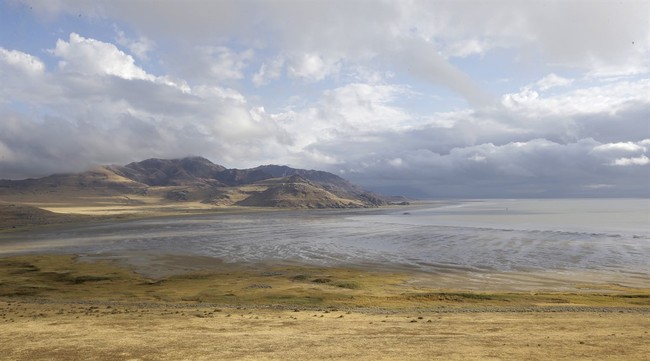
Utah is home to mountains and ski slopes. I’m not a hunter, but I am told that there are spectacular hunting opportunities. I like skeet shooting, but cooking a clay pigeon takes forever.
Utah is a great place for anglers. I used to ice fish and could almost always count on limiting out on trout. Unfortunately, Mrs. Brown is not a fan of trout, so my ability to claim to be the mighty outdoorsman feeding his family from the bounty of nature was severely curtailed, except for the one time I brought home a bass.
Unbeknownst to many, Utah is also the home of energy deposits, including coal, natural gas, oil, oil shale, and tar sands. The first three were Utah staples for years. Oil shale and tar sands have had tough times getting off the ground. And with the advent of the Obama administration, laws, and protests by environmentalist groups have often hindered energy production. Their efforts have included litigation with the support of lobbyists.
With efforts to gut the fossil fuels industry well underway, that leaves consumers with electricity. Electricity often requires batteries, especially those snazzy EVs, and those batteries require lithium.
Compass Minerals recently announced it was terminating its lithium extraction project on the Great Salt Lake. With the departure of Chris Yandell, who headed up the operation, Edward Dowling, Compass president and CEO, stated in part:
The environment surrounding our lithium project today is markedly different than the one that existed a couple of years ago when we started down this path. The simple fact is that the regulatory risks have increased significantly around this project. When combined with other changes to the commercial landscape, it became clear that the risk-adjusted returns on this project are inadequate to justify the investment. I want to thank Chris and the exceptional team he assembled for their efforts to advance the project over the last couple of years. We wish those who are leaving the company the best in their future endeavors.
The press release also said the company recognized approximately $77.3 million in expenses and losses in the first quarter. The company concluded, “Compass Minerals will continue to monitor and engage in legislative and regulatory processes in Utah to preserve the long-term optionality of the lithium potential at its Ogden operations.”
According to Fox 13, the impetus for the move may have been pending legislation that would curtail mineral extraction to preserve the lake. Republican Rep. Casey Snider of Paradise sponsored the bill, which prioritizes replenishing the water in the lake, which reached a historic low in 2022. The issue has been a frequent flyer in local headlines and the subject of protests at the Capitol. One news item that did not get as much attention last week was the report that the Great Salt Lake, like much of the rest of the state, got a healthy shot in the arm from last year’s snowpack.
Most of the world’s lithium comes from Australia, Chile, and China. In the 2022 article, CNBC noted that China controls more than half of the processing and refining worldwide. The same article states that the U.S. led the world in lithium production until the 1990s and that at the time, there was an estimated eight million metric tons in reserve.
The U.S. is not short on lithium, but many communities oppose the mining process. That leaves the U.S. at the mercy of other countries, especially China when it comes to powering EVs, cell phones, and the myriad of other electronic gizmos to which everyone is addicted. China does not have the best track record regarding human rights and environmental protection. Actually, the operative word would be “abysmal.”
The Great Salt Lake has had a rough time of it recently, but one wonders if Compass will be able to resume operations once the lake is back to normal. I doubt it. One also has to wonder if there were any attempts at finding a compromise or exploring mitigation efforts to allow the work to go forward.
Our love affair with the EV may be struggling at the moment, but no one is giving up their cell phones anytime soon. For that matter, not enough people have walked into walls or off cliffs, or driven into light poles wearing their Apple Vision goggles to make people re-think that development. We seem perfectly happy to leave lithium production in the hands of China so long as we get to play with our toys.
Economic independence, whether it involves the actual production of energy or the acquisition of the elements needed to make our Brave New World function requires extraction. The solar farms popping up across the Utah landscape, some of which could rival the size of some small towns, are of little use without lithium, which is controlled by an arguably hostile nation.
When it comes to such things, the debate is never about how we can access resources with as little impact as possible. Usually, the efforts are shut down. Well-meaning people believe that we can enjoy all of the things we demand with no effect on the environment, and China will continue to call the shots.











